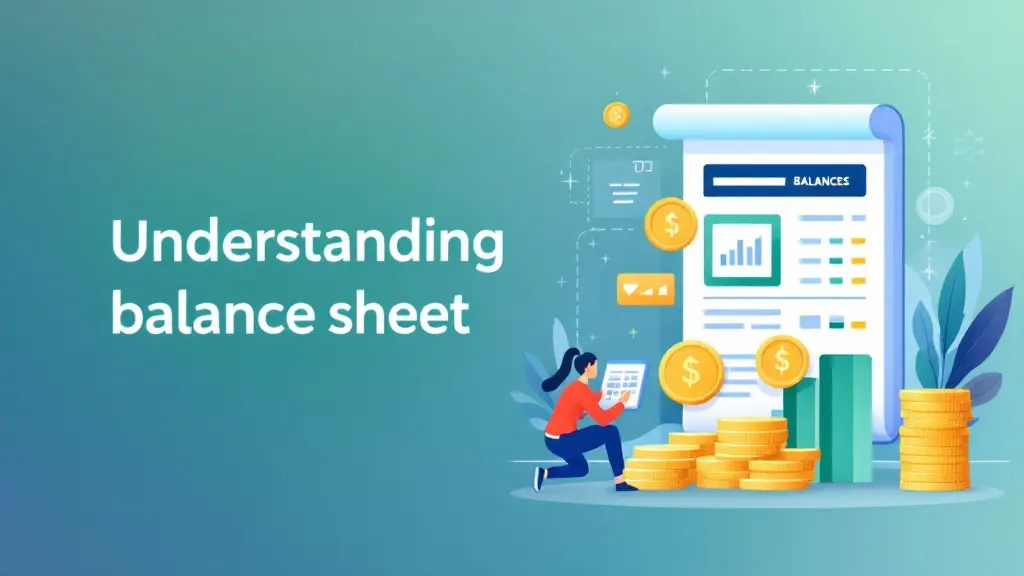The Ultimate Accounting Guide for Businesses: Everything You Need to Know
Table of Contents
Most Read
[fusion_dropcap class="fusion-content-tb-dropcap"]A[/fusion_dropcap]ccounting doesn’t have to be intimidating. Whether you’re a startup founder, a small business owner, or someone just trying to get a grip on financial basics—this guide will walk you through the essentials of accounting in a way that’s simple, human, and yes, even a little enjoyable.
What Is Accounting and Why Does It Matter?
At its core, accounting is the process of recording, summarizing, and analyzing financial transactions. It helps you understand your business’s financial health and make informed decisions.
But accounting isn’t just about keeping books. It’s about building confidence in your business—knowing what’s coming in, what’s going out, and how to grow sustainably.
Why Is Accounting Important for Businesses?
- Cash Flow Management: Keep track of what you earn and spend.
- Tax Compliance: Avoid penalties with timely and accurate tax filings.
- Financial Planning: Forecast future trends and allocate budgets.
- Investor Confidence: Clean books build trust with potential investors.
Key Types of Accounting You Should Know
Not all accounting is the same. Here are the main types relevant to most businesses:
1. Financial Accounting
Focuses on reporting the company’s financial performance to external stakeholders—like investors, regulators, and tax authorities.
2. Management Accounting
Internal-facing. It helps business owners and managers make operational decisions using data like costs, budgets, and forecasts.
3. Cost Accounting
A sub-type of management accounting. It’s all about tracking, analyzing, and controlling costs. Great for manufacturers and product-based businesses.
4. Tax Accounting
Ensures that you’re filing taxes correctly and making use of deductions and credits.
5. Forensic Accounting
Think of this as detective work for your finances. It’s used for fraud detection, audits, or legal proceedings.
Basic Accounting Terms You Should Be Familiar With
Let’s simplify the jargon. Here are a few terms that every entrepreneur should understand:
- Assets: What you own (cash, equipment, inventory).
- Liabilities: What you owe (loans, bills, salaries).
- Equity: Owner’s interest in the business (Assets – Liabilities).
- Revenue: Money you earn from sales.
- Expenses: Costs incurred to run your business.
- Profit: What’s left after expenses are deducted from revenue.
Bonus Tip:
Use the Accounting Equation: Assets = Liabilities + Equity
This is the foundation of your balance sheet.
The Accounting Cycle: How It All Comes Together
Here’s how the accounting process typically flows:
1. Transaction Occurs
You make a sale, receive payment, or pay a bill.
2. Record the Transaction
Using software or a ledger, document every detail.
3. Post to Ledger
Group transactions by category—sales, expenses, etc.
4. Prepare Trial Balance
Ensure your books are balanced (debits = credits).
5. Adjust Entries
Add depreciation, accrued income, or unpaid bills.
6. Generate Financial Statements
Create balance sheets, income statements, and cash flow reports.
7. Close the Books
End of the accounting period—start fresh for the next.
Tools That Make Accounting Easier
In today’s digital age, manual bookkeeping is becoming a thing of the past. Here are some popular tools that simplify accounting:
- Tally: Widely used in India, especially for GST.
- Zoho Books: Great for SMEs with invoicing and compliance tools.
- QuickBooks: A global favorite for comprehensive features.
- FreshBooks: Known for user-friendliness and billing features.
- Xero: Loved by startups for its sleek interface.
Choose what works best for your business size and complexity.
How to Set Up an Accounting System for Your Business
Here’s a step-by-step to get your financial system running smoothly:
1. Choose a Method:
- Cash Accounting: Record when money changes hands.
- Accrual Accounting: Record when income or expenses occur, even if cash hasn’t moved.
📌 Pro Tip: Accrual accounting offers a clearer picture of your financial position.
2. Open a Business Bank Account
Keep personal and business finances separate.
3. Pick the Right Software
Opt for a tool that supports GST, invoicing, payroll, and compliance.
4. Set Up a Chart of Accounts
This organizes your transactions into categories like revenue, expenses, assets, etc.
5. Stay Consistent
Reconcile your books regularly—weekly or monthly.
Common Accounting Mistakes to Avoid
Even seasoned entrepreneurs slip up. Here are some pitfalls to steer clear of:
- Mixing Personal and Business Expenses
- Ignoring Small Expenses (they add up!)
- Forgetting to Reconcile Bank Statements
- Missing Tax Deadlines
- Not Backing Up Data (cloud storage is your friend)
- DIY Accounting Without Knowledge (consult a pro when needed)
Accounting and Taxation: Stay Compliant, Stay Confident
In India, businesses must adhere to multiple tax regulations:
Goods and Services Tax (GST)
- File monthly/quarterly returns.
- Keep proper invoices.
- Maintain input tax credit records.
Income Tax
- Understand applicable slabs.
- Deduct TDS (if needed).
- File returns annually.
✅ FinTax24 Tip: Work with a registered tax consultant to stay compliant and maximize savings.
Outsourcing vs. In-House Accounting: What’s Best for You?
Go In-House If:
- You have a full-time finance team.
- You want direct control.
Outsource If:
- You’re a startup or SME.
- You need expert support at lower cost.
- You want help with compliance, taxes, and audits.
FinTax24, for example, offers end-to-end accounting services for businesses across India—whether you’re just starting or scaling up.
Future Trends in Accounting: What to Expect
As tech continues to evolve, accounting is becoming smarter, faster, and more insightful.
🔍 What’s Next?
- AI-Powered Bookkeeping
- Automated Tax Filing
- Real-Time Dashboards
- Blockchain for Auditing
- Cloud-Based Systems
Staying ahead of these trends can give your business a serious competitive edge.
Conclusion: Make Accounting Your Ally, Not Your Enemy
Accounting isn’t just a backend task—it’s the backbone of any successful business. With the right approach, tools, and partners, managing your finances becomes easier, more insightful, and even empowering.
✅ Need Help with Accounting? Let FinTax24 Support You!
At FinTax24, we understand the unique challenges Indian businesses face. Whether you need help with bookkeeping, GST, payroll, or income tax, our team of experts is here to guide you every step of the way.
📞 Contact us today to schedule a free consultation or visit www.fintax24.in to learn more.









